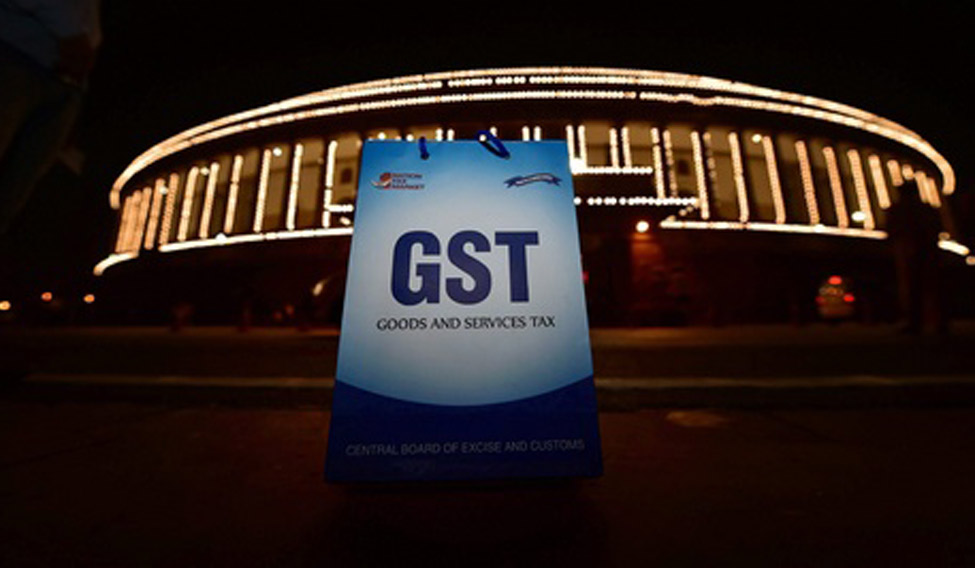A month after rollout of the unified indirect tax, GST, a number of traders and transport operators are seeking a rationalisation of the tax structure. Most of them are yet to register in the tax network.
On Wednesday, replying at a Lok Sabha discussion on passing of the GST Bills and extensions for integrating Jammu and Kahmir, which joined later, Finance Minister Arun Jaitley said that there were certain issues identified with the GST rollout, and those were being ironed out.
At the same time, the finance minister maintained: “You cannot expect me to tax chappal and a BMW at the same rate. That would be unfair to the poor.”
According to transporters, they are yet to see the real benefits of the GST. Under the unified tax regime also, the long wait for trucks outside city limits is not finished. "You still need to pay city entry tax to the Regional Transport Authority in most cities. The queue now is for that," said Pradeep Singal, president of All India Transporters Welfare Association.
According to him, the real benefit in having the taxes unified, is a limited one, as earlier also all tax challans were deposited and checked from a single window. "The waiting time still remains for us, contrary to what many customers feel that GST has put extra pairs of wheels in trucks," said Singal.
In the ministry, work is underway to introduce a format for e-way bills. "The next step would be to have in place the machines to tag and verify these e-way bills in all toll counters. Once that is done, it will certainly ease up truck congestion outside cities," said Hasmukh Adhia, revenue secretary, ministry of finance.
Work is also underway to address issues of all those trade bodies, who felt that having come under the tax ambit for the first time, taxes should be further rationalised.
Farmer lobbies, too, have demanded in rationalistaion of farm input rates for seeds, fertilisers and pesticides from 8, 12 and 28 per cent to standard 8 per cent.
"The situation for a farmer is complicated as he, who is providing raw material for other food products, cannot claim refund on any GST paid," said Ajay Vir Jakhar, Chairman, Punjab Farmers' Commission, on situation for farmers a month after the GST roll out.
According to Jakhar, kinnow, potato and tomato farmers in Punjab, who were supplying to food processing industries at zero per cent tax earlier, will now have to shell out five per cent extra with no chance of claiming a refund on their tax credit.
Farm produce were brought under the GST ambit for the first time with a standardised zero per cent duty applicable for most primary farm produce (grass, grains and pulses) and five per cent for all others, including animal feed.
Meanwhile, Navin Kumar, chairman of GST-N, the IT backbone of the tax network, said in a statement that of the total 71 lakh service tax and excise tax filers, only 44 lakh has been able to make the transit to the new system.
Filing of returns, for July and August, under the system has been extended to September, as users reported a non-functional website, facing huge traffic.
Most users, seeking extension of filing deadlines, said they were unable to upload their documents. The GST-N is working out on server connectivity issues to make the system faster, Kumar assured in his statement.
Exporters, especially of perishable products like marine products, meat, food processing industries and dairy, were in a fix as exports were not being allowed.
The notifications under GST related to export were confusing even after several amendments and clarifications of the government. Finally, procedures to allow exporting goods without settling dues in the new tax regime were allowed last week.
"Frequent changing of invoice and other formats have added to the overall compliance cost for most enterprises," said Sachin Menon, partner and head, indirect tax, KPMG India.
"One month is just a stage as this disruption sets in. Going ahead, in the next two to three months most of these issues will ease out. Hopefully, not at any further cost of compliance for the tax payer," said Menon.






